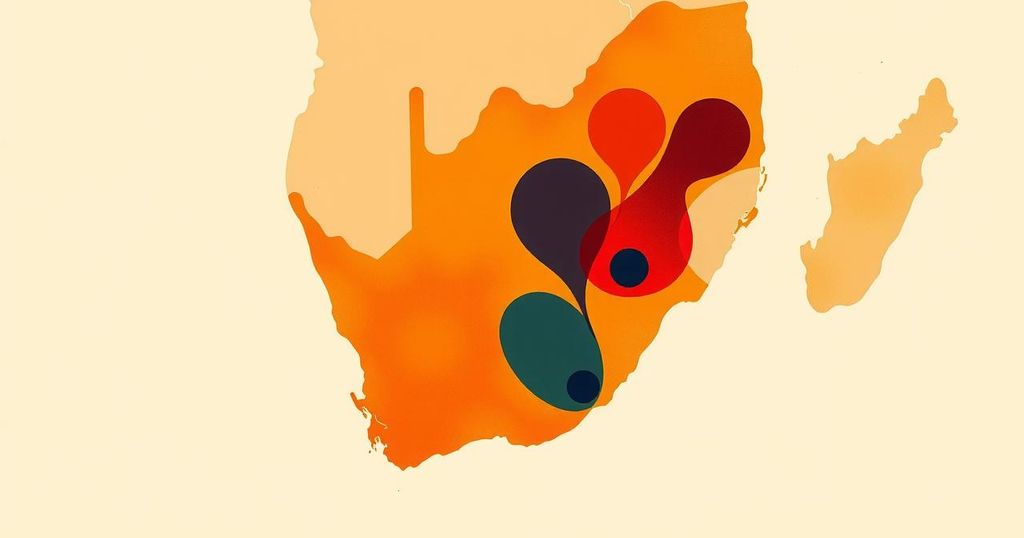South Africa’s Jewish community expresses profound disappointment towards the government following recent actions supporting Hamas and anti-Israel initiatives. The ANC’s formation of The Hague Group, alongside human rights-abusing nations, suggests a cynical distraction from domestic issues. This alignment raises questions about the credibility of their advocacy, while the local Jewish community continues to feel betrayed and concerned for the future.
The disappointment among South Africa’s Jewish community towards its government has intensified since October 7, 2023. Although Johannesburg remains a safe place for Jews, the actions of government officials have raised significant concerns. President Cyril Ramaphosa and the African National Congress (ANC) appear to have betrayed not only the Jewish community but also the foundational principles established in post-Apartheid South Africa under Nelson Mandela’s leadership.
In the aftermath of Hamas’ brutal attack on Israel, Naledi Pandor, the Minister of International Relations and Cooperation, expressed support for Hamas. Moreover, South Africa has initiated proceedings against Israel at the International Court of Justice, alleging false claims of genocide. This has led to the formation of The Hague Group, a coalition which includes governments of countries known for poor human rights records and issues of corruption, suggesting a diversion from their internal challenges.
The Hague Group’s agenda raises questions about its commitment to genuine human rights advocacy. While it appears to focus solely on Israel, the absence of references to other global conflicts or human rights abuses, such as those against the Uyghurs or Palestinians suffering under Hamas, undermines its credibility. President Ramaphosa’s continued blame on Israel for the ongoing conflict further indicates a predetermined stance against Israel.
The ANC has demonstrated a troubling willingness to engage with groups and nations that have histories of violence and oppression, including contacts with Hamas, Iran, and other war criminals. The launch of The Hague Group was marked by the presence of prominent anti-Israel organizations, highlighting a potential agenda rooted in extremism and radicalism.
Notwithstanding the political climate, South Africa remains a viable home for the Jewish community. However, the ruling ANC’s decisions undermine the goodwill developed over time and suggest a betrayal of the Jewish community’s historical support during the struggle against Apartheid. This alignment with authoritarian regimes poses a risk to South Africa’s commitment to democratic values and the rule of law, raising further concerns about the welfare of Palestinians as well.
In conclusion, the South African government’s actions, particularly through the formation of The Hague Group, have led to profound disappointment among the Jewish community. The ANC’s political maneuvers suggest a troubling disregard for historical alliances and democratic ideals, raising questions about the motivation behind their stance on Israel. As South Africa navigates these complex international relations, it is imperative to consider the broader implications for both its citizens and the global community.
Original Source: www.algemeiner.com




